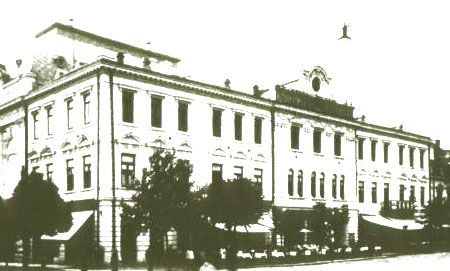
The first official reference about a theatrical event in Braila city was in 1896. The event was opened to the public at the Rally Theater where Hariclea Darclée began her career in 1881, also Maria Filotti in 1905.
In 1919 becomes Comunal Theater, then in 1949 State Theater Braila - Galati and in 1969 obtaining actual name, Maria Filotti Theater in honor of actress Maria Filotti. With a rich history and impressive activity the Filotti Maria Theater has now a various repertory theater, with a band of 26 actors, 2 directors, 1 scenographer.
The repertory theatre produces contemporary and classic plays, directed by personalities such as Catalina Buzoianu, Alexa Visarion, Constantin Codrescu, Mircea Daneliuc, Dominic Dembinski, Victor John Frunză. All these personalities have contributed to the theater from Braila and transformed it today in one of the most important stages of the country. Starting in 1995 Maria Filotti Theater presents the International Canto Competition Hariclea Darclee and from 2004 the Days and Nights Festival of the European Theater, intiated by soprano Mariana Nicolesco. Hariclea Darclée Biennial Canto competition means for Braila a real rebirth of an old tradition. From 1995 until present time no less than 10,000 people gathered spontaneously around the theater during the Concerts of Mariana Nicolesco. Returning to Romania after a successfully career, Mariana Nicolesco made every effort to serve young artists and she is greeted with pleasure by people from Brăila at each her concerts. Mariana Nicolesco supports the International Canto Competition Hariclea Darclée, organized in honor of the first interpreter of Tosca by Puccini, Hariclea, who was born in the Danube city, Braila.
Mariana Nicolesco is President of Darclée Foundation, also of the International Canto Competition Hariclea Darclée; in competition took part over 1,200 young artists from Romania and other 40 countries from 5 continents, thus the competition is considered one of the most important events.
The year 2010 will mark 150 years since the birth of Haricleea Darclée, muse of Braila, legendary and emblematic figure, as stated Mariana Nicolesco.

































